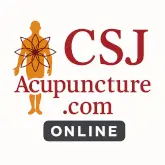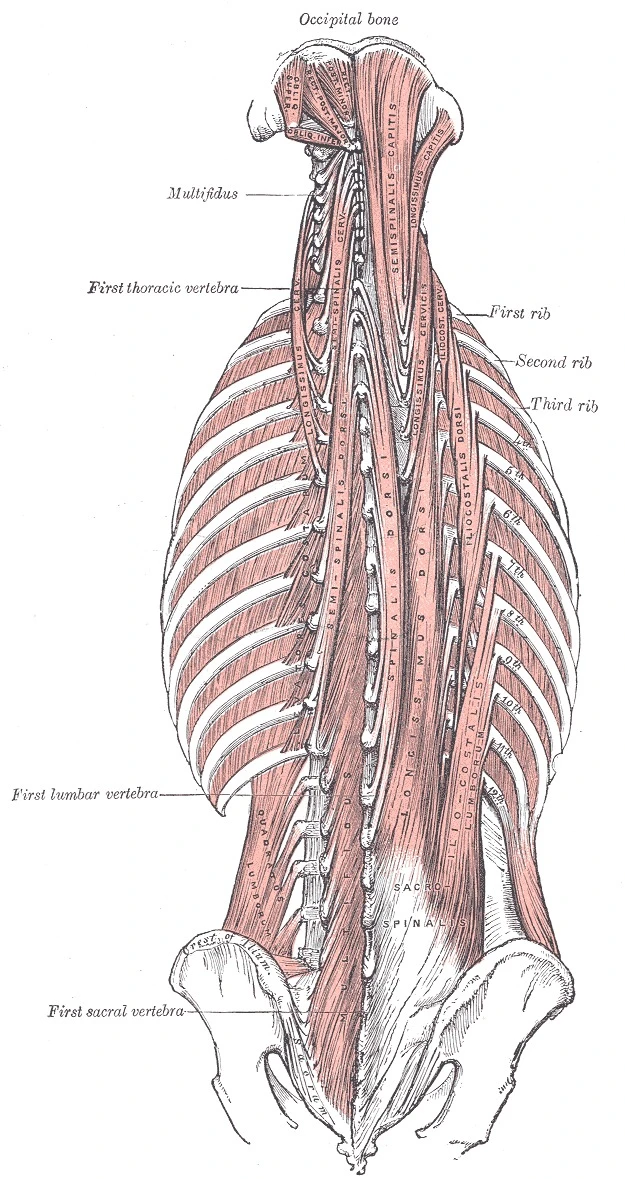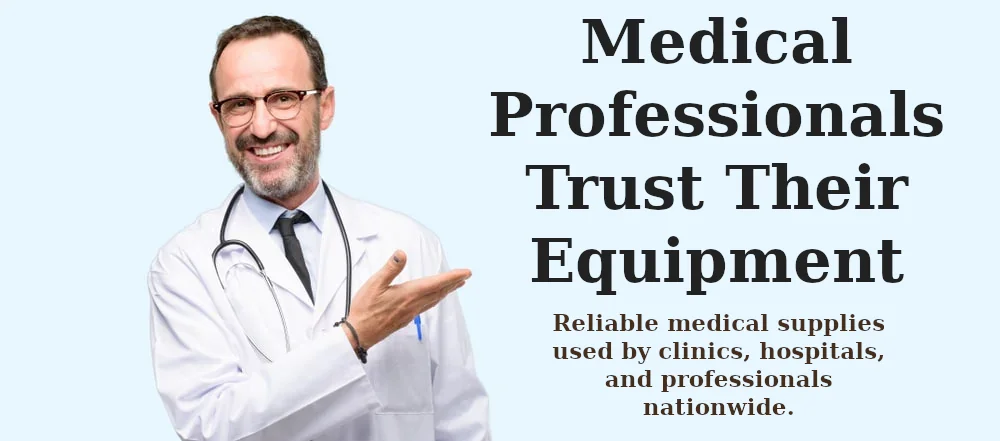This post may contain affiliate links and ads in which we may earn a small percentage of purchases.
Table of Contents
Today we’ll cover muscles of the low back, in particular the ones I find most important in the clinical setting, including the erector spinae and the Quadratus Lumborum.
The muscles of the back are divided into three categories including superficial, intermediate, and deep1. Today we’ll be focusing primarily on the deep muscles since they make up a majority of what we call the low back.
Section 1: Muscles of the Low Back Anatomy
Superficial Muscle Layer
Latissimus Dorsi
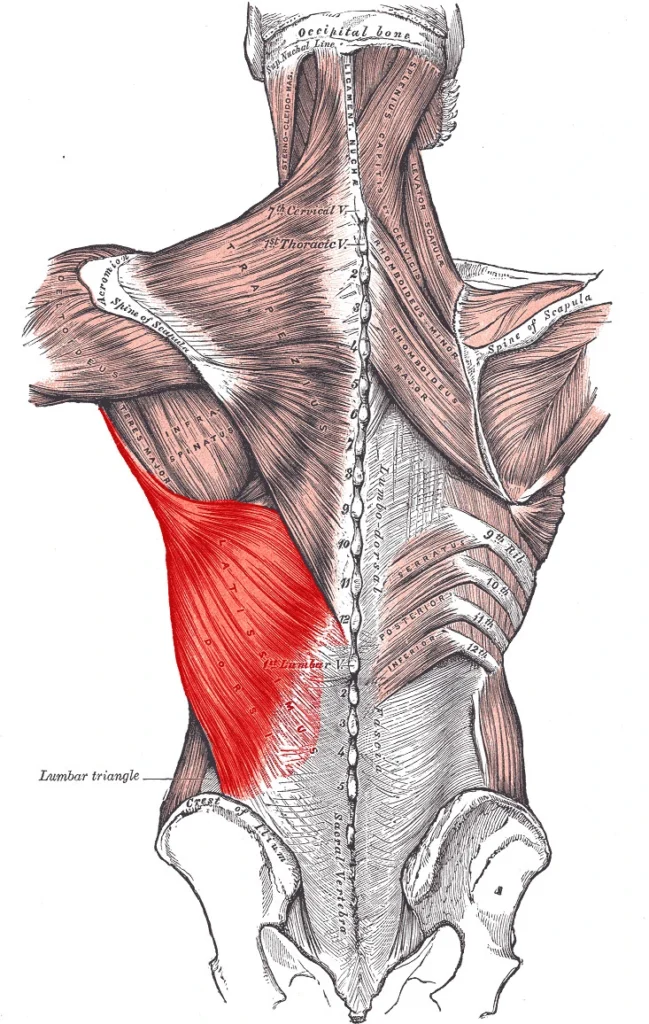
- Origin: Spinous processes of T7-L5, thoracolumbar fascia, iliac crest, and lower ribs.
- Insertion: Intertubercular groove of the humerus.
- Function: Extends, adducts, and medially rotates the arm; aids in trunk extension.
Intermediate Layer
Serratus Posterior Inferior
- Origin: Spinous processes of T11-L2.
- Insertion: Lower borders of ribs 9-12.
- Function: Assists in depressing ribs, stabilizing the thoracolumbar area.
Deep Muscle Layer (Intrinsic Muscles)
- Erector Spinae Group (Iliocostalis, Longissimus, Spinalis)
- Origin and Insertion: Multiple vertebral attachments, spanning the sacrum to the skull.
- Function: Extends and stabilizes the vertebral column.
Multifidus
- Origin: Sacrum, transverse processes of lumbar vertebrae.
- Insertion: Spinous processes of lumbar vertebrae, 2-4 segments above.
- Function: Stabilizes vertebrae, aids in extension and lateral rotation of the spine.
- Quadratus Lumborum
- Origin: Iliac crest.
- Insertion: 12th rib, transverse processes of L1-L4.
- Function: Lateral flexion of the spine; assists in stabilizing the lumbar region.
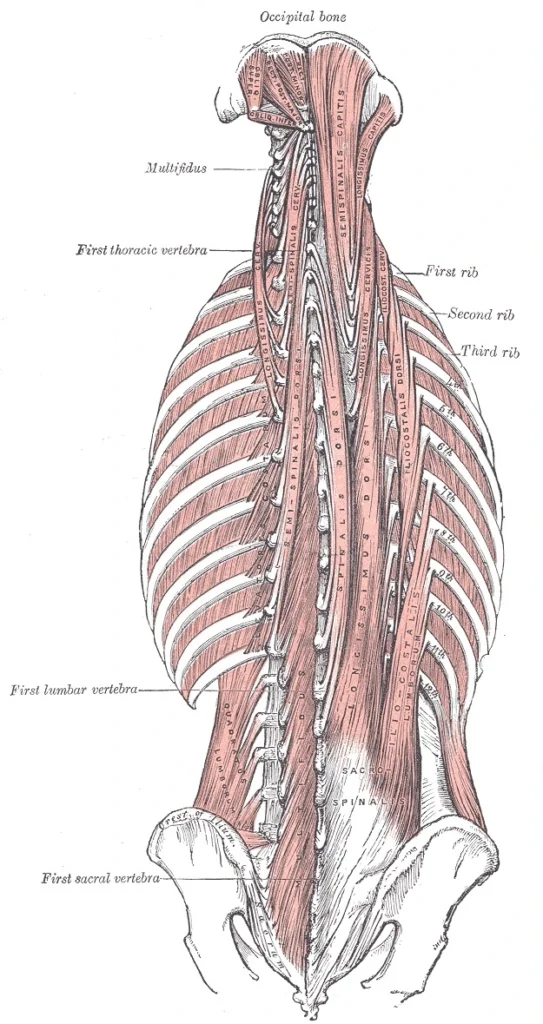
Section 2: Functional Roles of Low Back Muscles
Spinal Stability and Core Support
The low back muscles play a major role in the motion of the axial skeleton.2
Mobility and Range of Motion
A stainless-steel acupuncture pen and gua sha set for massage, reflexology, and tension relief.
 View Product
View Product
The low back is capable of combining movements, such as:
- Flexion and rotation
- Extension and lateral bending
- Lateral bending and rotation
These combined movements allow for a wide range of motion in the low back.
Load-Bearing and Shock Absorption
The lower back muscles are there to absorb and bear the load of the upper body.
Common Conditions Involving Low Back Muscles
According to the National Institute of Arthritis and Musculoskeletal and Skin Diseases, symptoms of back pain include the following:3
- Increasing pain with lifting and bending.
- Worsening pain when resting, sitting, or standing.
- Back pain that comes and goes.
- Stiffness in the morning when awakening and lessened back pain with activity.
- Pain that radiates away from the back into the buttocks, leg, or hip.
- Numbness or weakness in your legs or feet.
Muscle Strain and Sprain
Causes: Overuse, improper lifting, or sudden movements.
Symptoms: Pain, stiffness, limited mobility.
Degenerative Disc Disease
Breakdown of vertebrae over time due to effects wide raging.
Herniated Disc
Causes disc to compress or rupture. Can cause pinching of the nerves.
Assessment and Diagnostic Techniques
Physical Examination
Palpation of muscle groups, range of motion tests.
Evaluating muscle strength, endurance, and flexibility (such as Straight Leg Raise).
Surgical Considerations
Situations when surgery may be necessary for conditions like severe disc herniation. That should be discussed with a board certified surgeon for any medical advice or prognosis.
Section 3: Clinical Perspective on Low Back Muscles
Key Takeaway Summary
Understanding the muscles of the low back is essential for:
- Maintaining optimal posture and movement patterns
- Preventing lower back pain and injuries
- Enhancing athletic performance and functional ability
References
- Modes RJ, Lafci Fahrioglu S. Anatomy, Back. [Updated 2023 Feb 27]. In: StatPearls [Internet]. Treasure Island (FL): StatPearls Publishing; 2024 Jan-. Available from: https://www.ncbi.nlm.nih.gov/books/NBK539746/ ↩︎
- Modes RJ, Lafci Fahrioglu S. Anatomy, Back. [Updated 2023 Feb 27]. In: StatPearls [Internet]. Treasure Island (FL): StatPearls Publishing; 2024 Jan-. Available from: https://www.ncbi.nlm.nih.gov/books/NBK539746/” ↩︎
- National Institute of Arthritis and Musculoskeletal and Skin Diseases. 2023. Back Pain. Retrieved October 16, 2024 from https://www.niams.nih.gov/health-topics/back-pain ↩︎
Medical Disclaimer: This article is for informational and educational purposes only and is not a substitute for professional medical advice, diagnosis, or treatment. Always consult a qualified healthcare provider with any questions about a medical condition or treatment.
